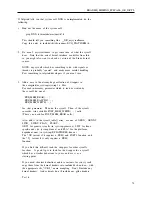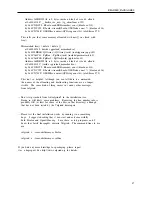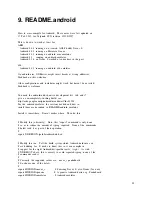
README_MISSING_SYSCALL_OR_IOCTL
If Valgrind tells you that system call NNN is unimplemented, do the
following:
1.
Find out the name of the system call:
grep NNN /usr/include/asm/unistd*.h
This should tell you something like
__NR_mysyscallname.
Copy this entry to include/vki/vki-scnums-$(VG_PLATFORM).h.
2.
Do ’man 2 mysyscallname’ to get some idea of what the syscall
does.
Note that the actual kernel interface can differ from this,
so you might also want to check a version of the Linux kernel
source.
NOTE: any syscall which has something to do with signals or
threads is probably "special", and needs more careful handling.
Post something to valgrind-developers if you aren’t sure.
3.
Add a case to the already-huge collection of wrappers in
the coregrind/m_syswrap/syswrap-*.c files.
For each in-memory parameter which is read or written by
the syscall, do one of
PRE_MEM_READ( ... )
PRE_MEM_RASCIIZ( ... )
PRE_MEM_WRITE( ... )
for
that parameter.
Then do the syscall.
Then, if the syscall
succeeds, issue suitable POST_MEM_WRITE( ... ) calls.
(There’s no need for POST_MEM_READ calls.)
Also, add it to the syscall_table[] array; use one of GENX_, GENXY
LINX_, LINXY, PLAX_, PLAXY.
GEN* for generic syscalls (in syswrap-generic.c), LIN* for linux
specific ones (in syswrap-linux.c) and PLA* for the platform
dependant ones (in syswrap-$(PLATFORM)-linux.c).
The *XY variant if it requires a PRE() and POST() function, and
the *X_ variant if it only requires a PRE()
function.
If you find this difficult, read the wrappers for other syscalls
for ideas.
A good tip is to look for the wrapper for a syscall
which has a similar behaviour to yours, and use it as a
starting point.
If you need structure definitions and/or constants for your syscall,
copy them from the kernel headers into include/vki.h and co., with
the appropriate vki_*/VKI_* name mangling.
Don’t #include any
kernel headers.
And certainly don’t #include any glibc headers.
Test it.
78
















































